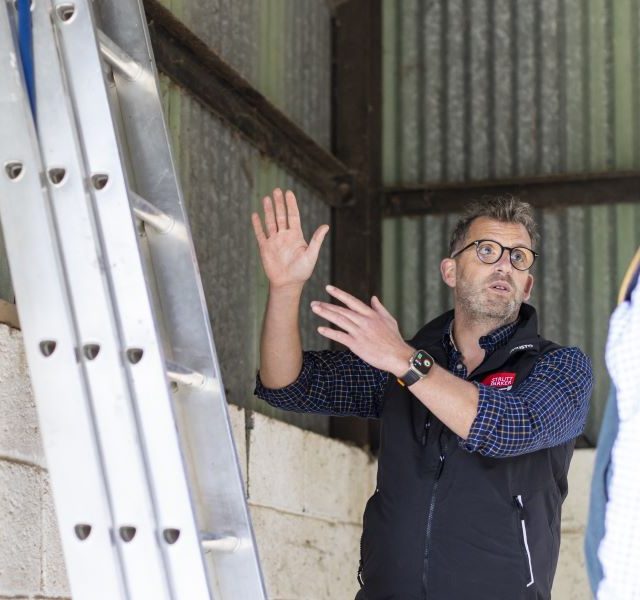Land Business Update | Week Commencing 31st January 2022
Welcome to our update on key land management, farming, planning and energy issues.
FARMING
Improving Farm Productivity: new grant scheme now open in England
The Improving Farm Productivity grant, part of the Farming Investment Fund, is now open to farmers, foresters and growers in England (including agricultural contractors). Projects aiming to reduce environmental impacts and boost productivity using innovative equipment, technology and infrastructure can secure funding for robotic harvesting and crop spraying equipment, automated milking systems and slurry acidification equipment and infrastructure, among other items. Under this first round of the scheme, the minimum grant on offer is £35,000 and the maximum grant capped at £500,000 per applicant. The grant covers up to 40% of the total project costs. There is a two part application process and the first stage, which is filling in the eligibility checker, closes on 16th March 2022. If you would like more information, please read our blog or get in touch with your local Strutt & Parker office. We expect the scheme to be over-subscribed so make applications as professional as possible.
AHDB’s free Farm Business Review service extended until June 2022
AHDB is running its free Farm Business Review (FBR) service until June 2022, following DEFRA extending the funding window of the Future Farming Resilience Fund. Strutt & Parker is working with AHDB to deliver the FBR service to farmers, which includes access to a combination of online tools, expert advice and peer support to help prepare for the phasing out of Basic Payments. If you would like to benefit from this free advice, please contact Marie Charles or your local Strutt & Parker office.
ENVIRONMENT
Agri-Environment Climate Scheme opens again in Scotland
£30m is available to Scottish land managers under the latest round of AECS, which opened on 24th January and will close on 29th April (although there are different opening periods for public access and collaborative applications). It funds projects that support farmers to adopt low-carbon farming land management practices and protect the environment. This year’s scheme includes support for conversion to and maintenance of organic land, the area of which the Scottish Government wants to double. A new round will open each year until at least 2024. Please contact Mary Munro, head of farming in Scotland, if you are interested in submitting an application. We are expecting a huge amount of interest from farmers as this is a full round of the scheme with all the options for environmental and habitat management available, after the past two years where only limited funding was offered.
FORESTRY
New ‘Plant the Future’ campaign launched by DEFRA and the Forestry Commission to promote woodland creation
The campaign aims to encourage farmers and land managers across England to plant more trees and bring more woodlands and forests in active management. The different funding opportunities being promoted include the England Woodland Creation Offer (EWCO), through which landowners can receive over £10,000 per hectare for new woodland creation on areas as small as one hectare. Read our blog post ‘5 things to know about the England Woodland Creation Offer’ by Hugh Williams , for key details about the EWCO. For more information, contact your local Strutt & Parker office or our specialist forestry team, John Clegg & Co, for woodland creation projects at a commercials scale.
Increased payments for Countryside Stewardship woodland options
As part of the recent review of Countryside Stewardship payment rates, some woodland options have changed:
- Increase of Woodland Creation Maintenance (WD1) option from £200 to £300 per ha per year (applicable to all existing and new CS agreements).
- Introduction of four new area-based options to supplement the management of woodland (applicable to new agreements starting 1st January 2023 onwards). Some of the options can be ‘stacked’.
- Payments for the active management of smaller woodlands (WD2) are increased to a minimum of £1,000 per year (applicable to new agreements starting 1st January 2023 onwards).
- Increased range of options compatible with WD2, including Historic Environment capital items and veteran tree surgery.
More information is available on the Forestry Commission website here.
PROPERTY AND RURAL ECONOMY
First state of rural enterprise report published from NICRE’s survey
Rural businesses in parts of England have shown remarkable resilience during COVID-19 by innovating and adapting in response to the severe economic challenges of the pandemic, according to a major new survey from the National Innovation Centre for Rural Enterprise (NICRE). Some of the main findings are:
- More than a third of rural firms in the North East, South West and West Midlands diversified their business in the wake of COVID, with half of these developing new sales channels and two-thirds expanding their customer base.
- A greater proportion of rural businesses than urban businesses were able to maintain or increase their turnover.
- Despite this, COVID still caused substantial disruption, with 42% of rural firms experiencing decreased turnover and 37% reporting mainly negative effects in the 12 months prior to the survey.
The survey provides, for the first time, a clear picture of how rural businesses have been affected so far by COVID. NICRE has highlighted that the results should not be used to mask the need for ongoing support for rural enterprise as the Government seeks to ‘level up’ Britain. Strutt & Parker comment: this type of report is exactly why we wanted to be involved in NICRE from the start. It is essential reading for policy makers and anyone who is passionate about the economies of rural places. Although it shows rural businesses to have been at least as resilient as urban businesses, it also provides detailed pointers on where they need more support and how policy makers can support them. Their management tends to be more informal than their urban counterparts and they don’t have as many contacts or as large a network of advisers and mentors. Supporting them will in turn support the wider UK economy.
Digital divide between urban and rural areas still far away from being closed
A recent report by the public accounts committee (PAC) has found that the government’s promise to deliver full-fibre broadband access to all homes by 2025 is already being broken, with the target having been revised down to 85% of homes. It is expected that faster broadband will mostly be delivered to urban homes before rural ones. At the end of 2021, half of urban homes had access to next-generation speed broadband whilst only a quarter of rural homes benefited from it. The PAC highlighted the heavy reliance on companies such as Openreach and Virgin Media to achieve the targets as one of the reasons for this disappointing performance. If rural areas are being left behind once again with no access to fast and affordable broadband, the digital divide will remain and it will be difficult to see how rural areas are being included in the government’s Levelling Up strategy.
New proposals to tackle hare coursing
Hare coursing, in addition to being a cruel illegal practice that damages rural communities, has significant impacts on this emblematic species of the British countryside. Brown hare populations are in decline and it is a priority species for conservation. The government has proposed amendments to the Police, Crime, Sentencing and Courts Bill to better tackle hare coursing, through the introduction of two new criminal offences – (i) trespass and (ii) being equipped to trespass with the intention of using a dog to search for or pursue a hare. Both would be punishable on conviction by an unlimited fine and / or up to six months’ imprisonment. Courts will also gain new powers to recover the costs incurred by the police in kennelling coursing dogs and disqualifying offenders from owning or keeping dogs.
Second homes owners will no longer be able to use holiday lets tax loophole
The government has announced tougher tax rules, to take effect from April 2023, targeting owners of second homes in England who avoid paying council tax by claiming that their often-empty properties are holiday lets and therefore benefitting from small business rates relief. Currently, second homeowners can access small business rates relief by claiming that they intend to let their property out as holiday accommodation but no proof of this is required. The new rules will require them to prove that their second home is being rented as holiday accommodation for a minimum of 70 days per year as well as being available as a holiday let for 140 days a year, among other criteria. Acceptable evidence will include websites or brochures used to advertise the property, letting details and receipts. If there is insufficient evidence, the properties will be eligible for council tax. These changes are intended to protect the tourism industry and benefit popular destinations.






